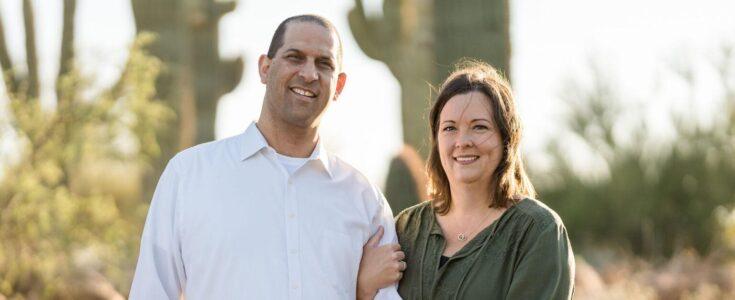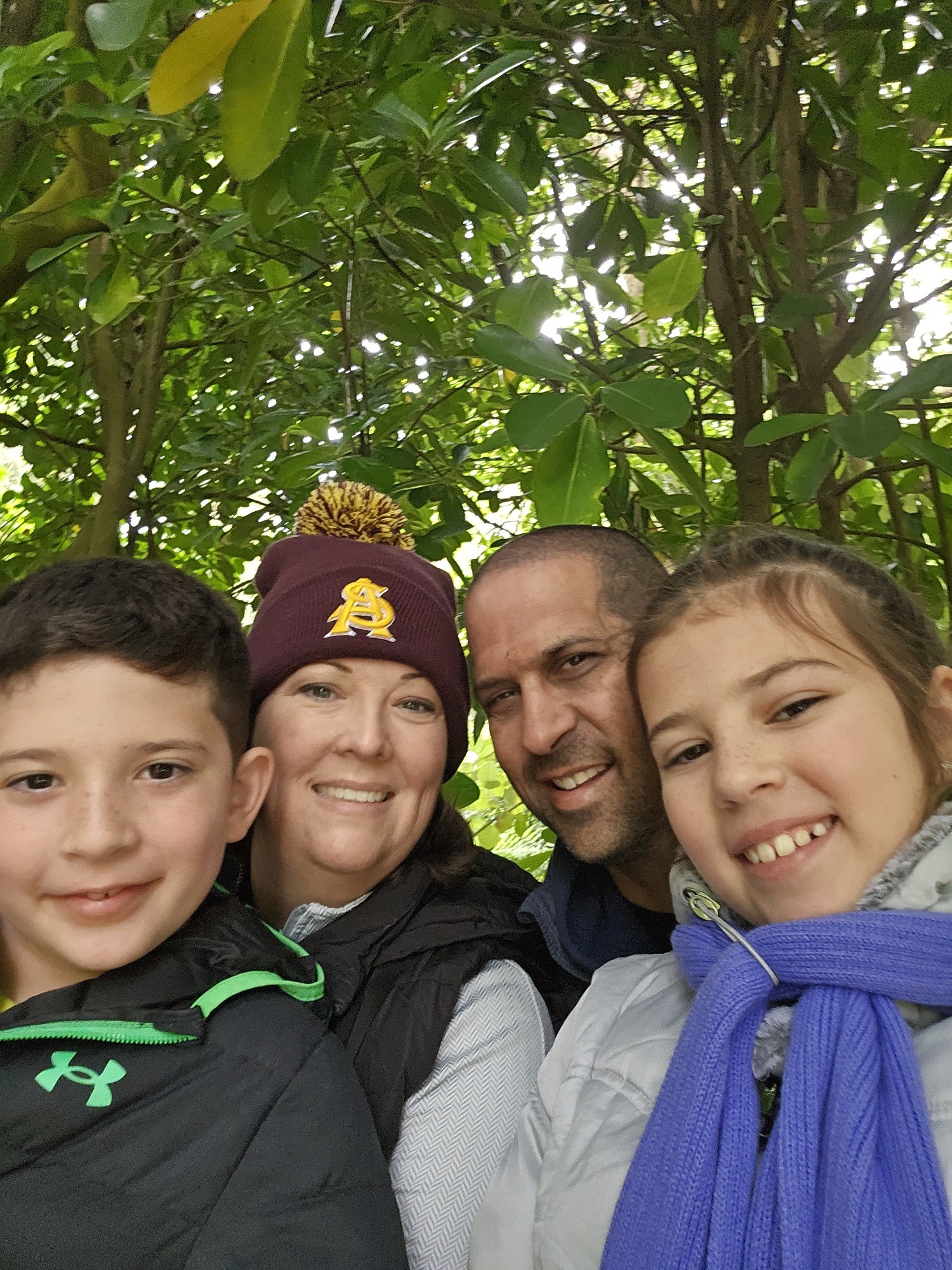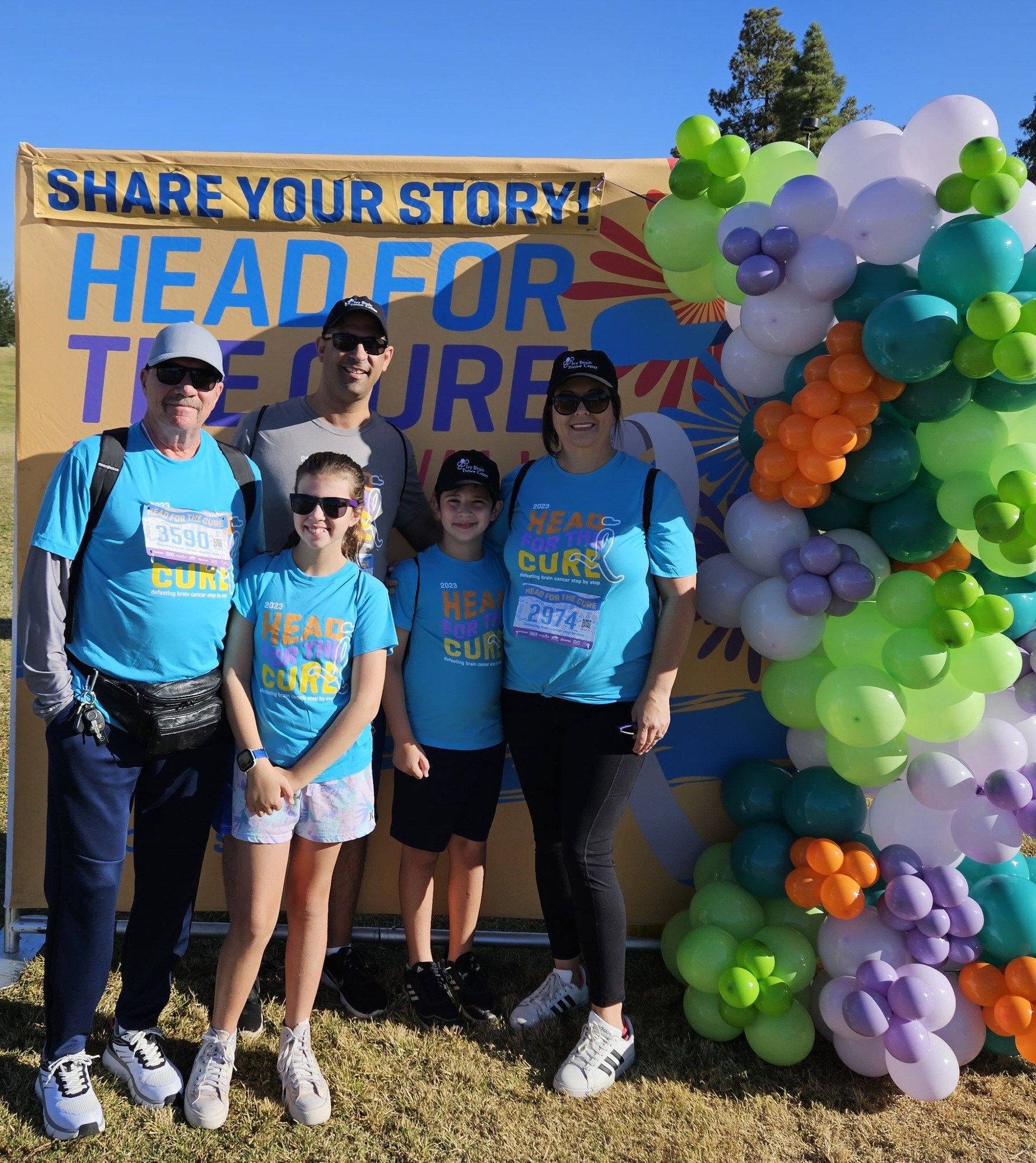
Ivy Blog
Managing brain cancer: A caregiver’s perspective
- November 29, 2023
- Ivy Center
- Posted in Caregivers

Eileen Berger was awakened from sleep one night by a horrific scream. It jarred her awake. Her husband, Scott, lying next to her, was having a massive seizure.
“I had no idea what was happening. I had never seen anything like that before,” she says. “I wouldn’t wish it on my worst enemy. It was awful.”

He was rushed to the hospital. Doctors couldn’t stop the seizures, so they put Scott into a medically induced coma. It was early January 2021, the height of the COVID-19 pandemic, and no one was allowed to be with Scott in the hospital. Eileen and her two young children relied only on phone calls from the nurses. He stayed in the hospital for six weeks undergoing treatment and rehab.
Scott came home in February, on his birthday.
“That period of time was so difficult because we couldn’t go see him,” Eileen says. “I couldn’t talk to him on the phone because of his limitations. Communication was incredibly limited.”
Doctors determined a brain tumor Scott had 20 years prior, before he even met Eileen, had returned and was causing the seizures. His neurosurgeon, Dr. Randall Porter, performed brain surgery to remove the tumor. The tumor had progressed to a grade 3 astrocytoma.
The shock and trauma of it all stick with Eileen. There are lasting triggers – nighttime always brings a sense of fear. Even now, if Scott moves in the middle of the night, Eileen instantly wakes up to ensure he’s ok. Their daughter was woken up during the first seizure and had trouble sleeping for months, sometimes she still does.
Rising above the worry and what-ifs of Brain Cancer
Scott’s scans have been stable with no signs of tumor growth. The only lasting deficit he experiences is fatigue, due in part to the medication he’s on. He also battles the anxiety that comes before a scan. The whole family experiences scanxiety. To cope, they’ve started practicing meditation and doing their best to focus on all the blessings in their life.
“No one is prepared for life changes like this,” Eileen says. “I can’t change it, I can only change how we live every day.”
This perspective doesn’t come easily to Eileen. She’s a self-proclaimed worrier, a title she’s had to work hard to overcome in the past few years. No one knows what tomorrow will bring – another seizure, a cure. Being in a constant state of worry and what-ifs is no way to live, she says.
A sign hanging in the Berger house reads: Gratitude Changes Everything. The point, Eileen says, is that you can take horrible news, a setback or a bad day and focus on it or you can look for the positive and just be grateful. That shift in perspective has changed how the Berger family views their circumstances.
There are days when Eileen allows herself to feel sad, asking why this happened and admitting that this is not what she wanted for her family. But most days, she directs her thoughts towards gratitude and plans for the future.
“Gratitude is a choice,” Eileen says. “It’s not always the easy choice. It takes practice.”
Practicing gratitude can have a significant impact on mental, emotional and physical health.
The role of a Brain Cancer caregiver
Scott’s fatigue doesn’t always allow him to share in the family responsibilities, which is a hard reality for him to accept as he’s an involved father. Most of those tasks fall on Eileen. She juggles a full-time job, managing her kids’ school, sports and activities, and caring for Scott. With all those roles and responsibilities, life is not always pretty, she says.
“The world is a hard enough place without brain cancer,” Eileen says. “We can either rise to the occasion or we can melt down.”

Her efforts don’t go unnoticed. Scott nominated Eileen for a Legacy of Love award from the Head for the Cure organization that holds 5K runs across the country to raise money for brain cancer research. In his nomination, Scott said, “For the last two-plus years, she has been my rock and has done basically everything for our family. I wouldn’t be where I am today without her constant positivity and her drive for our family. I am grateful every day for the opportunity of each day and that I have her by my side.”
Scott is involved in several brain cancer organizations. He is committed to raising awareness of the disease and the need for more research, and he wants to support and encourage others going through a brain cancer journey.
“Scott is an incredible person. I don’t know how he keeps the perspective that he does. His story is really the incredible and inspiring one,” Eileen says. “I’m just so fortunate and appreciative to be on this journey with him.”

